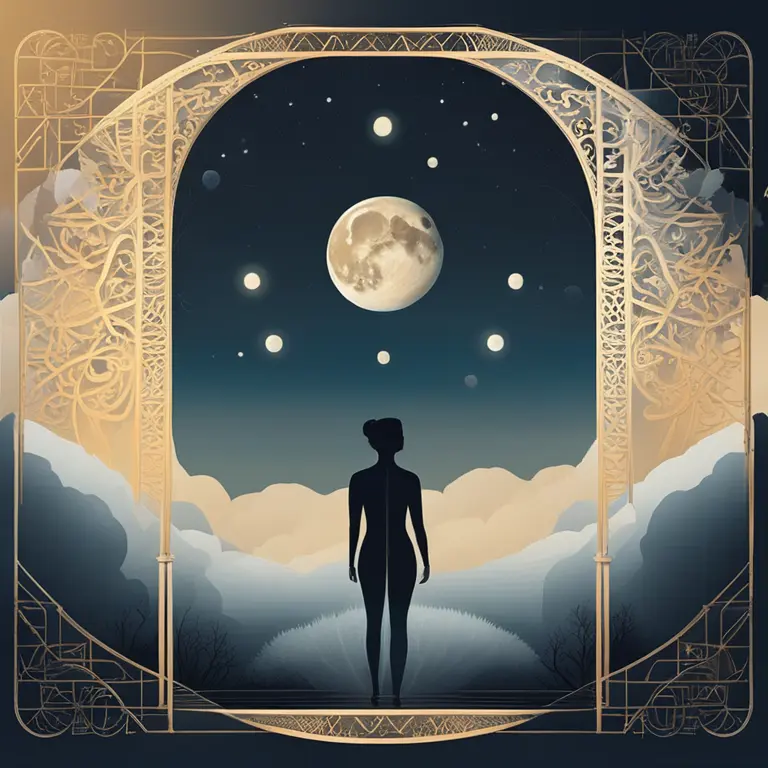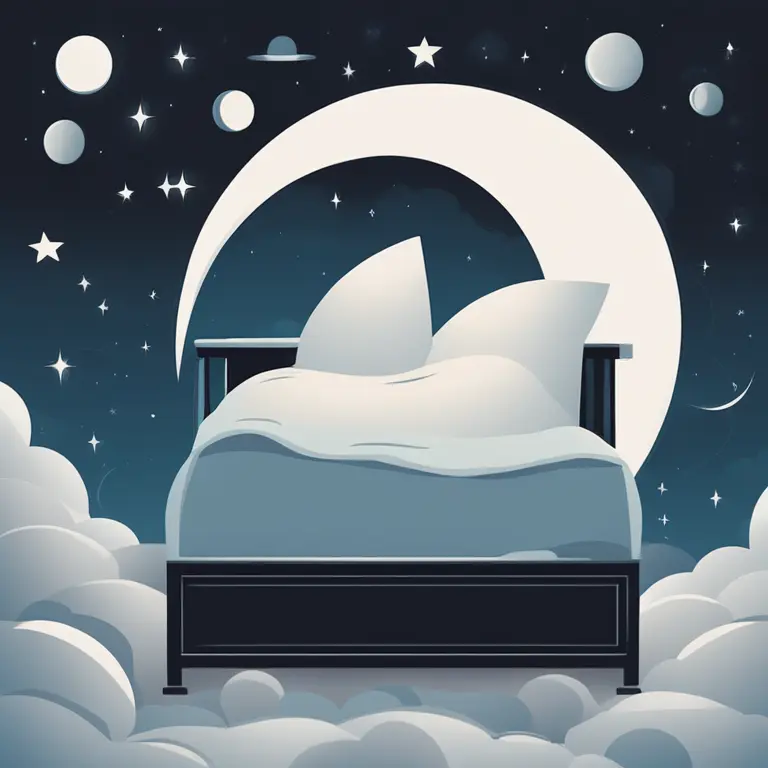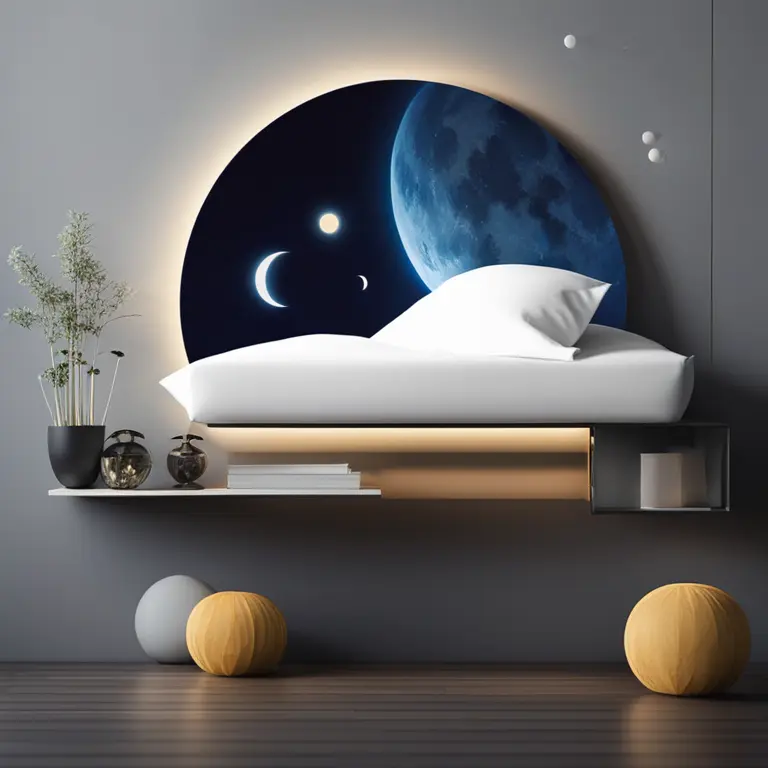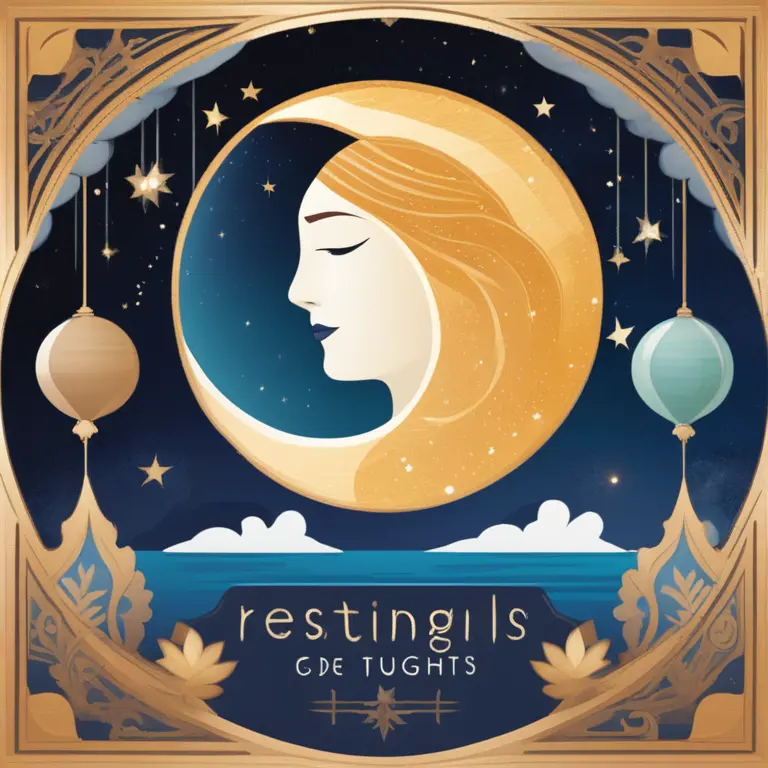
Discover How Moon Phases Impact Your Sleep
Examine how lunar cycles may impact your sleep and what you can do to harmonize with the nightly ebb and flow.
article by Priya Deshmukh
Mysteries of the Lunar Effect
For centuries, the moon's phases have been associated with human behavior. From the way people sleep to their moods, the celestial body's waxing and waning is thought to play a subtle yet significant role in our lives. Sleep, a vital function for health and well-being, seems to ebb and flow with the lunar cycles. With scientific studies offering insights, and astrology providing interpretations, the moon's phases continue to captivate those curious about its influence over our nocturnal patterns.

Scientific Perspectives on Lunar Sleep
Research has started to illuminate the effects that lunar cycles have on sleep quality. Studies suggest that during the full moon, individuals may experience reduced sleep efficiency and take longer to fall asleep. There may be a biological basis for this, possibly tied to our circadian rhythms and the natural light environment. However, science has yet to fully unravel the intricate details, and research continues to expand our understanding of this celestial influence on slumber.

Astrological Insights for Restful Nights
Astrology provides another lens through which to view the relationship between the moon and sleep. Each phase of the moon is said to carry distinct energies that can affect emotional and physical states. For instance, it's believed that the new moon invites introspection which can lead to deeper sleep, while the full moon's energizing presence might lead to restlessness. As we move into 2024 and beyond, harnessing these astrological insights might improve sleep harmony.

Working With the Lunar Cycle
Adapting to the lunar cycle may help enhance sleep patterns. Practices like reducing exposure to artificial light during a full moon or engaging in calming activities during the waning phases could be beneficial. Sleep environments can be optimized to align with the moon's energy, perhaps by sleeping in complete darkness during the new moon or using sleep masks to simulate a darker environment during the brighter phases.

Lunar Phases and Sleep Disorders
Those with sleep disorders might find it particularly important to pay attention to the moon. The increased light during a full moon or the subtle shifts in gravitational pull might exacerbate difficulties with insomnia or disturbed sleep. Considering the lunar calendar, and planning for potential disruptions, could be an integral part of managing sleep health for those sensitive to environmental cues.
Modern Life and Lunar Impact
Our contemporary lifestyle, dominated by artificial lighting and screen time, may dilute the moon's influence on our sleep. However, becoming more attuned to natural cycles provides opportunities for improved rest and well-being. By understanding the phases of the moon and their potential effects, individuals can take proactive steps to align their sleep habits with the rhythm of the night sky.
Forecasting Sleep Trends
Looking forward into 2024 and beyond, we can speculate how increasing awareness of circadian and lunar rhythms might influence sleep health. As we continue to embrace holistic wellness practices, aligning sleep with the lunar cycle could become a more commonly adopted strategy for enhancing rest and vitality. Astrological forecasts tailored to individual needs may also gain popularity, offering personalized advice on how to sleep better according to the moon's position.
Published: 1/19/2024
Modified: 1/19/2024
More predictions
Come back here soon to learn more about yourself and your future


Moon Phases & How They Impact on Relationships
Discover how the lunar cycle might influence your romantic connections and emotional dynamics.


The Significance of the Moon's Phases
Discover the significance of the moon's phases in astrology and how they influence our lives.


Optimal Moon Phases for Successful Deer Hunting
Discover the impact of lunar phases on deer activity and learn when to plan your hunting trips for the best chances at a successful harvest.